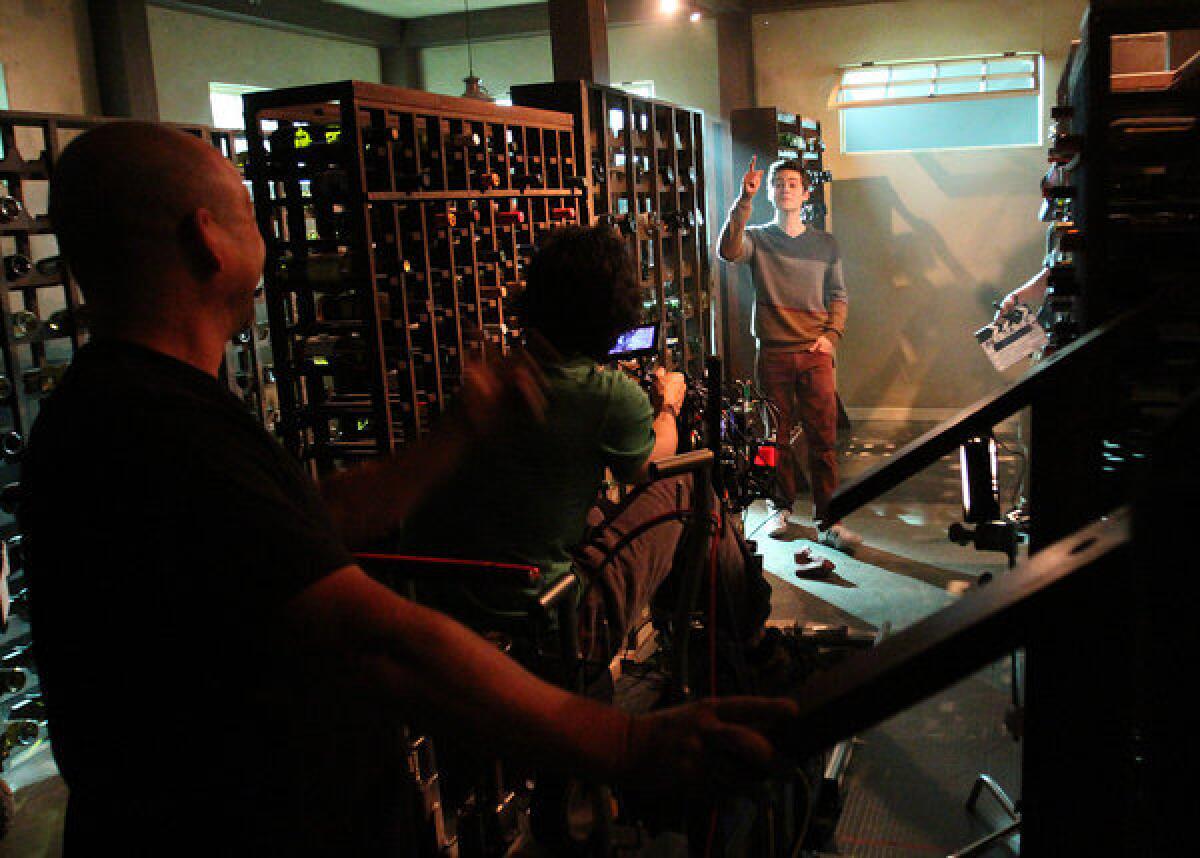Location filming in L.A. shows modest increase in third quarter

Location filming in Los Angeles rose 9% in the third quarter powered by increases in shoots for feature films and commercials.
The increase marks the third consecutive quarter of growth this year in location filming, according to data released Tuesday by FilmL.A. Inc., which handles permits for the city and the county.
Overall, on-location filming generated 11,792 production days in the three months ended Sept. 30, with the biggest gain in features, which increased 19% in the third quarter.
ON LOCATION: Where the cameras roll
The features category outperformed its five-year quarterly average by 15%, although activity was still well below its peak level of 1996, as more production has moved outside of California.
Most of the movies shooting in the L.A. area were lower-budget features, such as “Best Man” “Jersey Boys” and “Kitchen Sink,” all of which filmed in the third quarter and received a state film tax credit.
“Any increase in local production is cause for celebration, as long as we don’t lose sight of the big picture,” Paul Audley, president of FilmL.A. said. “California has yet to match and overcome out-of-state competition for this business.”
Commercial production rose 18% in the quarter, its strongest showing this year, as big advertisers such as AT&T, Best Buy and Hyundai continue to film heavily in the L.A. area.
PHOTOS: Hollywood Backlot moments
Television -- the single largest production category -- finished the quarter down 4%, reflecting double-digit declines in reality TV, sitcoms and web-based production.
Audley said the data provide support for efforts to strengthen California’s film tax credit. The state allocates $100 million annually, but two L.A. lawmakers announced plans last week to expand the program, which was enacted in 2009.
“Until Sacramento acts to level the playing field, we won’t see the kind of growth and prosperity that California families are counting on,” Audley said.
Mayor Eric Garcetti recently appointedveteran Hollywood executive Tom Sherak, former president of the Academy of Motion Picture Arts and Sciences, to lead Garcetti’s efforts to make L.A. more film-friendly and persuade state lawmakers to do more to support the state’s entertainment industry.
“I’ve made the industry a priority for my administration because it generates 500,000 jobs,” Garcetti said in statement Tuesday. “This isn’t about the stars we see on the screen but about carpenters, caterers, and electricians and the stores they shop in.”
The data is based on filming that occurs on streets as well as non-certified sound stages in the city and county.
ALSO:
The plot thickens in Hollywood union election
‘Piolín’ hopes to reboot his career
Why box-office surprises are becoming more common
More to Read
From the Oscars to the Emmys.
Get the Envelope newsletter for exclusive awards season coverage, behind-the-scenes stories from the Envelope podcast and columnist Glenn Whipp’s must-read analysis.
You may occasionally receive promotional content from the Los Angeles Times.











